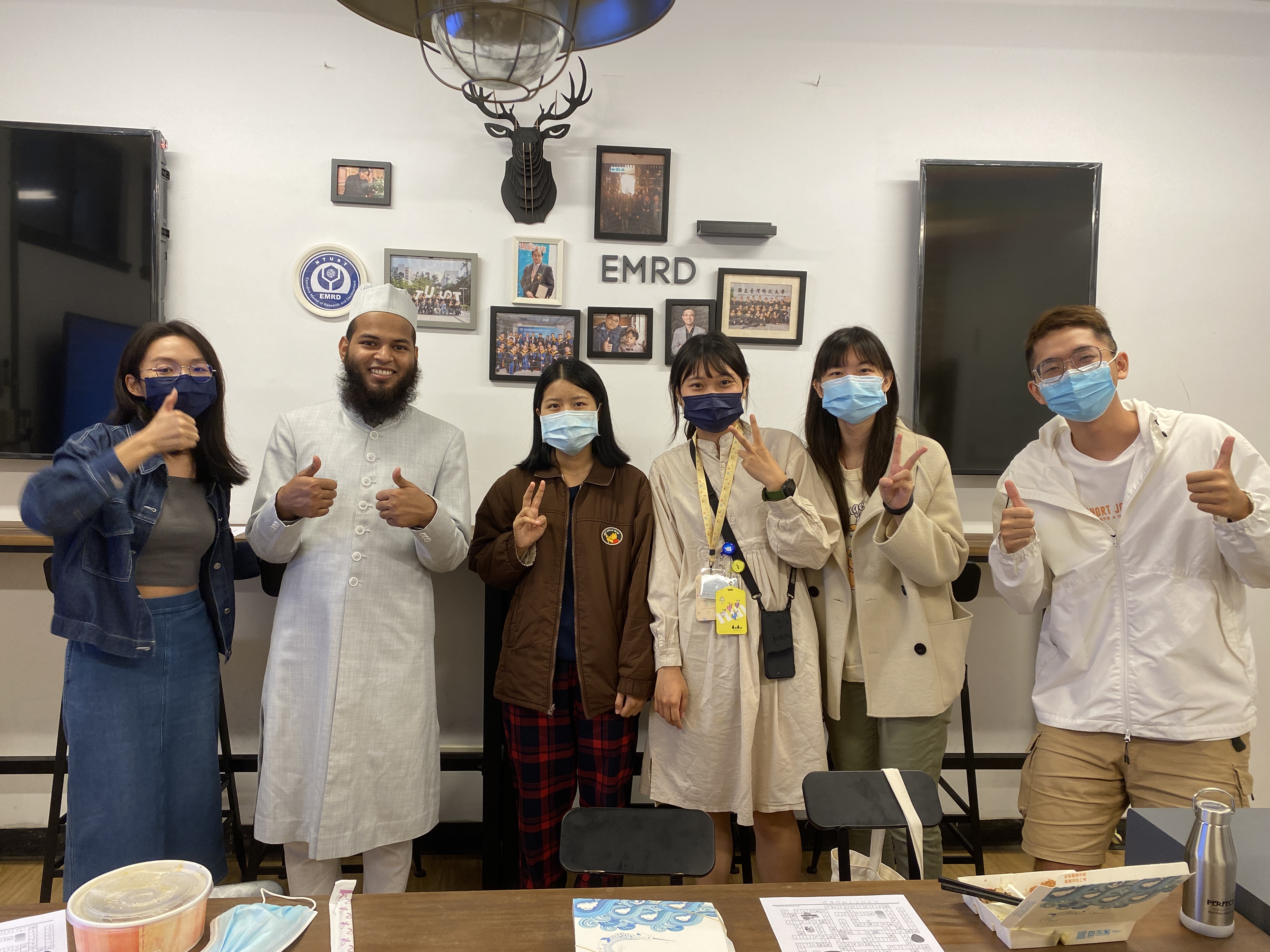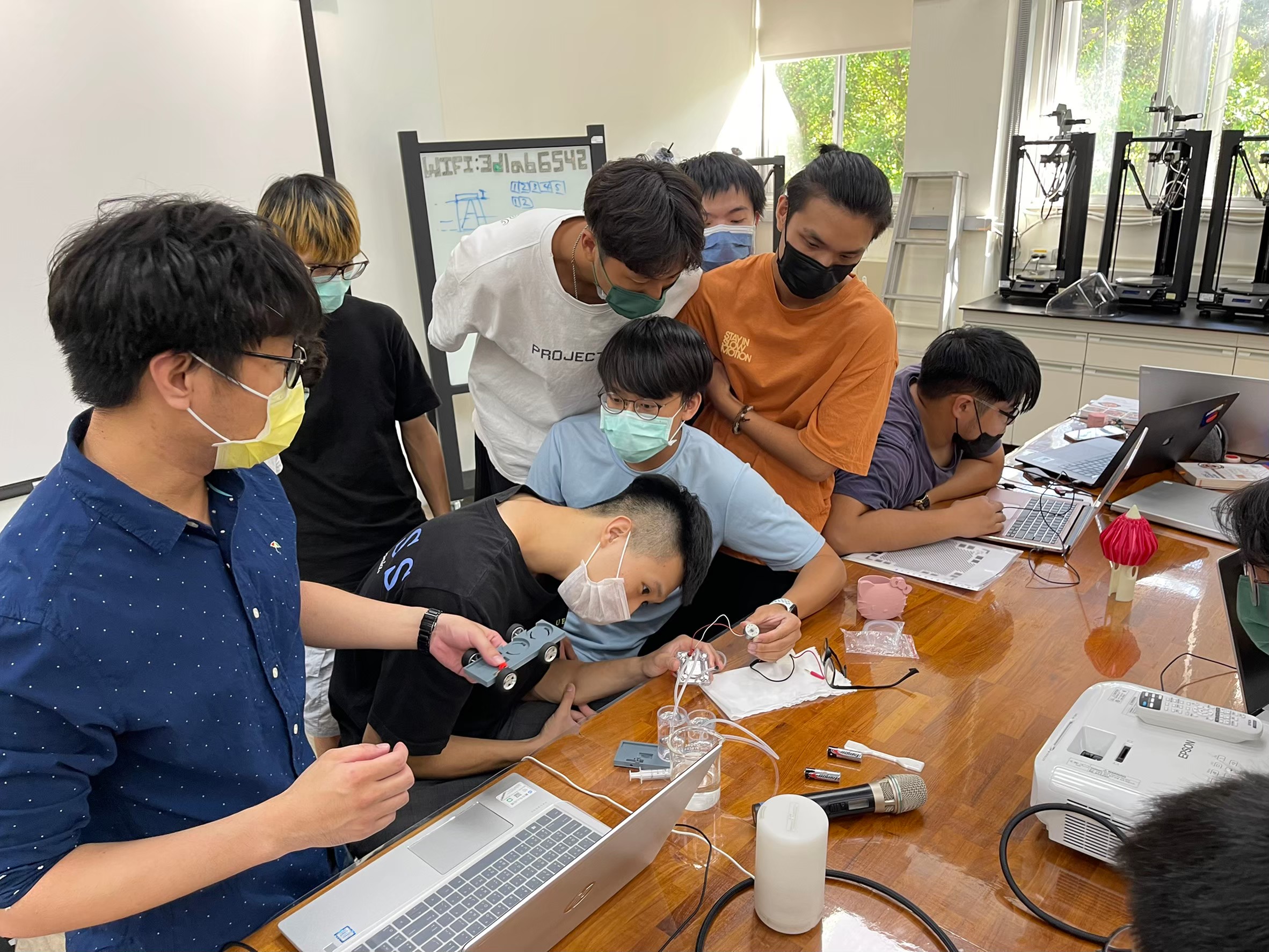Abstract
Improve teaching quality: Participate in Cambridge EMI Skills training and build EMI teacher growth communities
To improve the quality of student learning, the Center for Teaching and Learning Development (CTLD) provides Cambridge EMI Skills training to enhance teachers' EMI teaching skills, an online self-study course for teachers. Besides, CTLD provides English vocabulary for different academic situations and post-class quizzes for teachers to check their self-ability. Up to now, 51 of the 180 teachers in the College of Engineering have obtained the Cambridge EMI Skills certificate, which also allows teachers to acquire the relevant skills of EMI teaching through training courses. Therefore, students can absorb and comprehend more academic knowledge from teachers. EMI teacher growth communities have also been established among teachers in the College of Engineering to promote the exchange of various EMI teaching methods and curriculum management experiences among teachers. The College of Engineering has established 3 communities, and 15% of the faculty members have participated in the EMI practice community.
Ensure students absorb course knowledge: Provide learning support resources
When students have difficulty understanding professional knowledge in class due to the gap in English ability, they can read the Chinese handouts provided by teachers. It prevents students from being unable to acquire academic knowledge due to EMI teaching.
The teaching assistant system also plays a significant role in teaching. Hence, the College of Engineering encourages teachers to hire teaching assistants with good English skills to assist in the class and provide guidance and assistance in groups, which helps clarify students' problems promptly.
Alleviate the suffering of studying EMI: Improve students' English ability
In response to the teaching needs of engineering courses, the College of Engineering offers a free online "Advanced English for Engineering" course for all students in the College of Engineering. The content includes common English words for mathematics, physics, and chemistry, and how to write assignments and essays in English etc. The content taught in the course is applicable to students from their first year to graduate school. In the post-class questionnaire, 95.2% of the students agreed that the course was conducive to engaging in the all-English environment. Besides, many students shared their learning demands, such as more English-speaking courses. In response to such demands, the College of Engineering has also planned an English Corner to help students improve their English-speaking skills from the 111-1 semester, which has been held 11 times since early October.
Promote international exchange: Arrange international academic exchange activities
The College of Engineering often co-organizes academic exchange activities with foreign universities. Communicating in English when interacting with international students is necessary, which promotes cultural exchanges and teaches the importance of English proficiency in the application and expression of engineering practice.
Example 1: The Department of Mechanical Engineering and the partner department of the Department of Mechanical Engineering of Kyushu Institute of Technology co-organize an annual academic exchange program, and the activity arranges task-oriented group discussions. Each group comprises Taiwanese and Japanese members, and students conduct a series of collection and data analyses to predict the business models of semiconductor-related industries in Taiwan and Japan.
The teachers also provide academic guidance during the discussion.
Example 2: The Global Development Engineering Program co-organizes a summer camp with Tokyo Institute of Technology every summer, which was held in previous years as a physical visit to Taiwan, but due to the epidemic, this year it was conducted online, with professors from Tokyo Institute of Technology and NTUST in different fields such as materials, machinery, and electronics, giving online lectures, and allowing students to communicate with Japanese students in English after class. The course teaches students to design hydrogen vehicles with fuel cells combined with 3D printing technology and groups Taiwanese and Japanese students to participate in cooperative competitions, including design, briefing, and competition.
EMI Teaching Takes Root: Extending EMI Courses to Senior High Schools
The College of Engineering organizes senior high school cultivation camps during the winter and summer and semester hours, leads students to carry out energy education and practical courses, etc. To make senior high school students get used to the all-English teaching environment, the College of Engineering tries to add some EMI elements to the course and replace one to two hours course originally taught in Chinese with an EMI course taught by a foreign professor.
Enhancing students' connectivity to the workplace: Promoting industry-aligned courses
The College of Engineering has been actively cooperating with the industry. In recent years, the global intelligent manufacturing and semiconductor industry has boomed, and job opportunities in engineering have also increased significantly. To enhance students' competitiveness in entering emerging industries in the future, the College of Engineering also launched the "Advanced Semiconductor Process Equipment Program" last year. This program invites scholars from famous foreign universities, such as Tokyo Institute of Technology and Waseda University, to share professional knowledge and practical training in advanced semiconductor equipment with students, shorten the gap between the industry and the student's capability and cultivate Taiwan's high-end semiconductor manufacturing and design talents.
In addition, the College of Engineering has set up industry-sharing micro-courses to establish a channel for communication between students and industry. Therefore, industry teachers such as ULVAC TAIWAN INC., Japan Airlines, SHARP, and Pentel Taiwan were invited to share with students the advantages and influences of foreign language skills in the workplace. Exchanging opinions with business people enhances students' motivation and willingness to learn English. This semester, students will also be arranged to visit well-known manufacturers such as TSMC and Garmin to understand the industry trends through visits. It helps students explore their career goals and cultivate the skills and knowledge required for work during the study period.

